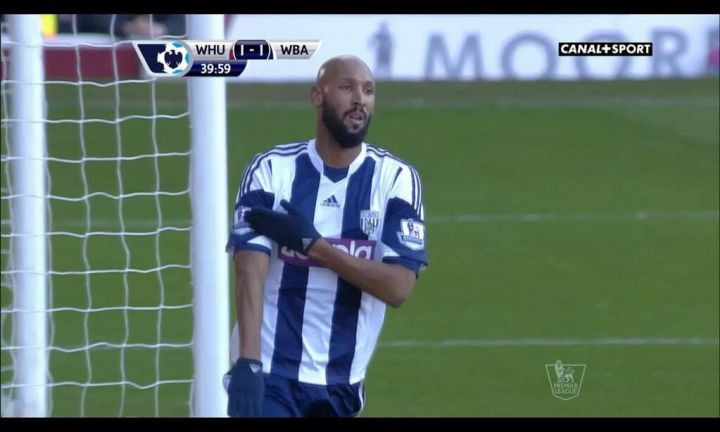Campaigners Urge FA to Increase Nicolas Anelka Quenelle Ban

Equality campaigners have urged the Football Association to appeal against the minimum five-match ban handed to footballer Nicolas Anelka for making the controversial quenelle gesture, disputing the panel's finding that the footballer may have been ignorant of its anti-Semitic meaning.
Kick It Out chairman Lord Ouseley, the Board of Deputies of British Jews and the Community Security Trust (CST) have all urged the FA to lodge an objection before the appeal period ends next week, and to follow Uefa by banning players found guilty of discriminatory gestures for a minimum of 10 matches, instead of the current five.
The ban and £80,000 fine, which were announced in February, were decided by a three-judge independent regulatory panel following Anelka's use of the gesture, described by Jewish groups as a reverse Nazi salute, after he scored for West Bromwich Albion against West Ham United in Decemeber.
Speaking to The Daily Telegraph, Ousely said: "There are clearly inexplicable conclusions reached by the independent regulatory body that the FA must surely want to challenge, because the evidence does not seem to be compatible with the outcome," he said.
The Board of Deputies joined calls for Anelka's punishment to be increased.
"The FA should now assess the tribunal's findings with some care and, in particular, should give very serious consideration to appealing the penalty, and we urge the FA to embark on that process without delay," it said in a statement.
The CST added: "If they think they've got a reasonable chance of success, certainly we would welcome an appeal."
Each also called on the FA to follow the lead of Uefa, which raised the minimum ban for those found guilty of performing the quenelle to 10 matches a week after the Anelka ruling.
"Five games should not be the minimum sanction. It should be 10 games, because it should be consistent with what Uefa is doing. We've always prided ourselves that we've been ahead of the thinking on punishment. Now we find ourselves behind Uefa, rather than alongside them," said Ousely.
All three bodies condemned the panel for clearing Anelka for anti-Semitic intent when performing the gesture, and not explaining how they arrived at the decision.
The ruling shows that the FA had pressed for a tougher punishment to be imposed, but the judges did not agree.
"His gesture was at a whole community, as opposed to an individual," Ouseley said. "He's having a go at every Jewish person, knowingly or unknowingly."
Labour MP John Cryer last week labelled the decision "pathetically spineless".
The Board of Deputies highlighted Anelka's declared friendship with Dieudonné, a French comedian with convictions for anti-Semitic hate speech who is banned from performing in several French cities.
The Board of Deputies said: "Given that Anelka had attended a performance by Dieudonné which was 'grotesquely anti-Semitic', given that, in the year following the performance, Dieudonné's behaviour – very well publicised in France – continued, and given that Anelka has formed, as he himself admits, a special friendship with this grotesque anti-Semite, we find the conclusion of the tribunal implausible.
"The conclusion the tribunal ought to have reached was that Nicolas Anelka must have had some awareness that the gesture was linked to anti-Semitism. Consequently, the reasoning for the sanction is, in our view, undermined."
© Copyright IBTimes 2025. All rights reserved.






















